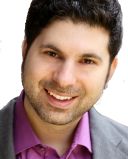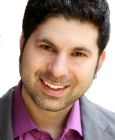
James Bond is one smooth mother lover. How does he do it? That is, how does he so seamlessly navigate multiple women, spy on Russian warlords, and win every game of Poker all the while remaining calm, cool and collected with a cigarette in one hand and a cosmopolitan in the other?
Granted, Bond is a fictional character (Jared DeFife is spot-on when he notes that psychologists love analyzing fictional characters). But double agents do exist. And so do ordinary people who have the Bond psyche, or least have it at their disposal and can turn it on and off depending on their goals.
But what exactly is the Bond psyche? Dr. Jonason and his colleagues have referred to the Dark Triad- the combination of Machiavellianism, sublinical narcissism, and subclinical psychopathy- as a "James Bond psychology". And in a recent paper called "Who is James Bond?: The Dark Triad as an agentic social style", they set out to determine the "particular constellation of personality traits and behaviors [that] enable those high on the Dark Triad to maneuver themselves into relationships with others and take advantage of others[.]"
While acknowledging that clinical levels of the Dark Triad traits are certainly socially undesirable, Dr. Jonason and his colleagues argue that the traits that underlie the Dark Triad, which are partially independent but moderately related to one another, are best viewed as one particular social orientation towards others and may facilitate people's goals, especially when those goals involve an exploitative social strategy and a short-term mating strategy.
Across two studies, they found that those scoring high on the Dark Triad are characterized by a distinct psychological profile of personality traits and social strategies.
In their first study, they found that those scoring high on the Dark Triad tended to be more extraverted, open to experience, and have higher self-esteem. They also tended to be less agreeable, neurotic, and conscientious. According to the researchers, the findings
"are consistent with the possibility that the Dark Triad traits reflect a highly selfish social strategy. High level of self-esteem, extraversion, and openness, along with low levels of conscientiousness and anxiety, may be instrumental in enabling an exploiter to persist in the face of potential social rejection and retaliation."
In their second study, they assessed self-reported altruism and had participants allocate dollar amounts to themselves and others across a number of scenarios. Based on the allocation patterns, participants were identified as either prosocial, a competitor, or individualist. They found that those high on the Dark Triad tended to be individualistic and competitive. Those high on the Dark triad, however, weren't particularly altruistic or prosocial. This is interesting, because as the authors note, the Dark triad may reflect a self-serving strategy that might not necessarily involve being unaltruistic or prosocial.
The researchers conclude that
"In a world where individuals want to avoid being taken advantage of, those high on the Dark Triad, like James Bond, who tend to be more agentic than others, have a particularly difficult task at hand. How to get what they want without rousing the suspicions or retaliations of others? The answer is to be extraverted, open, high on self-esteem, and low on conscientiousness and anxiety while being individualistic and competitive."
So now we know how Bond does it. While I'm not advocating becoming an all-around jerk, perhaps there are lessons both men and women can learn from the Bond psyche (not to mention the cool equipment!).
As the researchers note, it's possible for people to have multiple social strategies at their disposal, one agentic and measured by the Dark Triad, and one prososocial, measured with altruistic behavior, agreeableness, and conscientiousness. Flexibility is key here, as there certainly are times when an altruistic, cooperative orientation is essential (e.g., when forming meaningful reciprocal relationships) and times when you may want to adopt an agentic social strategy (e.g., when you want to hold your ground on your beliefs and maintain your self-respect and/or in risky situations that require successfully bouncing back from setbacks).
According to the researchers,
"It is possible that while people are inclined to utilize one strategy versus the other, individuals may have both strategies at their disposal (Hawley, 1999), and the adoption of each strategy depends on the situation and individual trigger points. Such a position has been advocated by those interested in adaptive individual differences (e.g., Buss, 1999) and trait activation theory (e.g., Lievens, Chasteen, Day, & Christensen, 2006)."
I do have to hand it to Bond; after I flipped my collar and gave him my most intimidating stare-down, he remained cool as a cucumber. Man he is cool.

© 2010 by Scott Barry Kaufman
References
Buss, D.M. (1999). Human nature and individual differences: The evolution of human personality. In L.A. Pervin & O.P. John (Eds.), Handbook of personality: Theory and research (2nd ed.)(pp. 31-56). New York, NY: Guilford.
Hawley, P.H. (1999). The ontogenesis of social dominance: A strategy-based evolutionary perspective. Developmental Review, 19, 97-132.
Jonason, P.K., Li, N.P., & Teicher, E.A. (2010). Who is James Bond?: The Dark Triad as an agentic social style. Individual Differences Research, 8, 111-120.
Jonason, P.K.. Li, N.P., Webster, G.W., & Schmitt, D.P. (2009). The Dark Triad: Facilitating short-term mating in men. European Journal of Personality, 23, 5-18.
Lievens, F., Chasteen, C.S., Day, E.A., & Christensen, N.D. (2006). Large-scale investigation of the role of trait activation theory for understanding assessment center convergent and discriminant validity. Journal of Applied Psychology, 91, 247-258.




